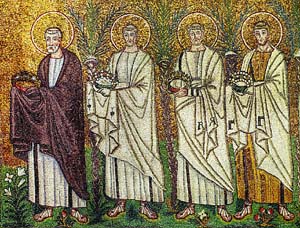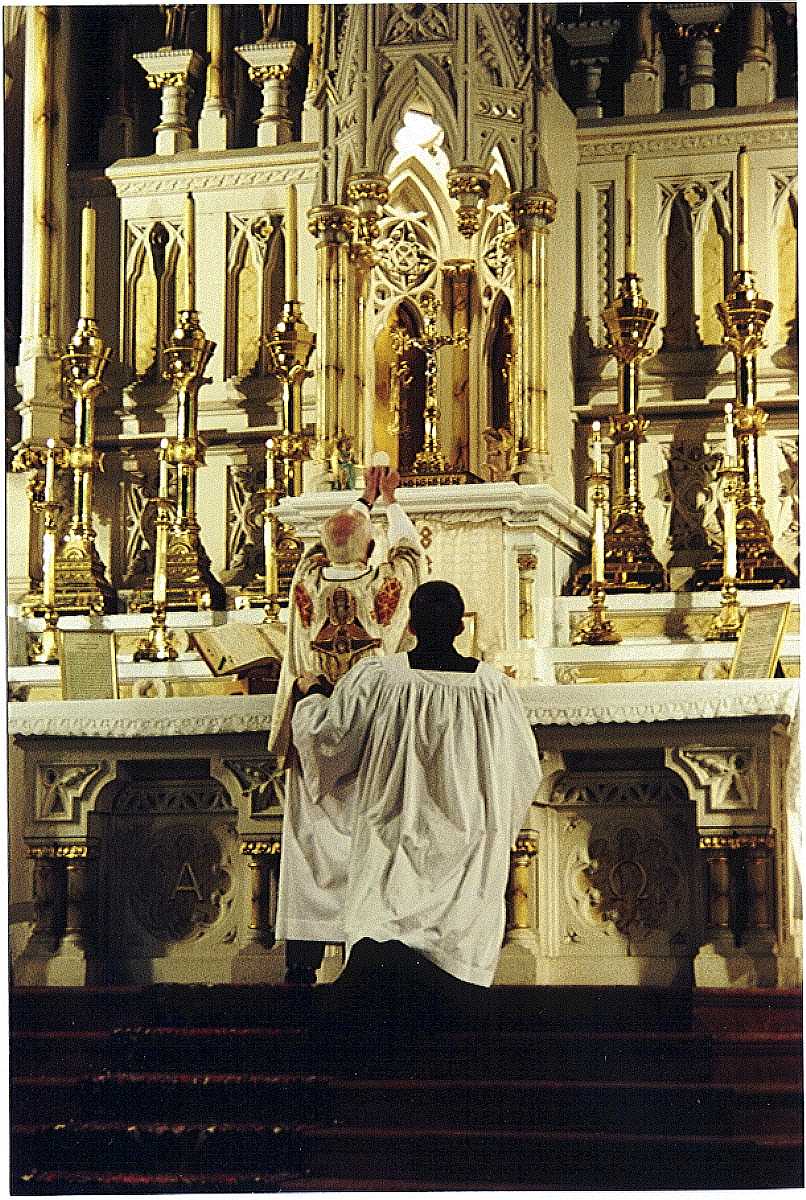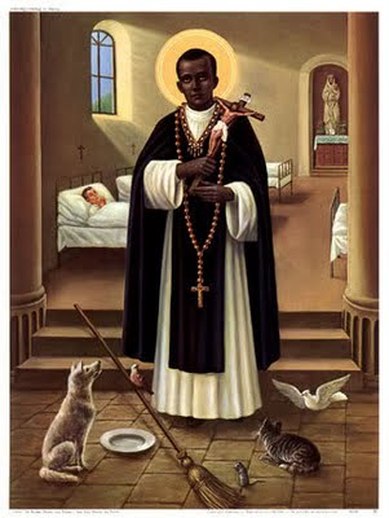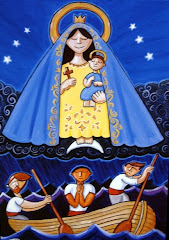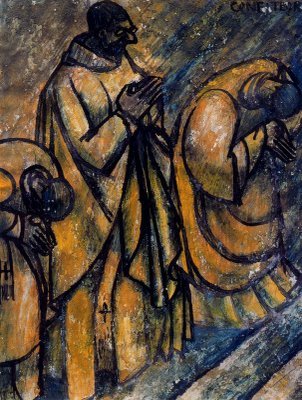Church of San Apollinare Revenna.
Feast: 12 November
Pope Martin I was born in the Tuscan town of Todi on the Tiber, and elected Pope--the seventy-fourth Pope--on the 21 of July, 649. without imperial approval. Saint Martin Convened the Lateran Council which condemned and deposed the patriarch of Constantinople for the crime of the heresy of Monothelitism, a heresy which taught that our Lord lacked a human will. This act placed the holy Pontiff in direct opposition to the Emperor Constans II himself a Monothelialite heretic. The Emperor had the Pope arrested brought before the Senate at Constantinople where after declaring him deposed from the throne of Saint Peter and charged with rebellion against God and the state, he was tortured, striped before the public and loaded down with a great number of heavy chains. The Pope was after placed in prison. Patriarch Paul of Constantinople, after witnessing the cruel manner in which Saint Martin had been treated, and moved by the Holy Spirit, repented of his heresy, a move which saved Saint Martin from execution, but was exiled instead to Cherson in the Crimean peninsula(modern day Chersonesus Taurica). The pope arrived at Cherson on the 15th of May 655 died soon after on the 16th of September from starvation and the rough treatment he suffered during his imprisonment and transportation to the Crimean. Saint Martin is listed among the holy martyr because of the manner in which he died, he is the last Pope martyrs.
His relics are venerated in the city of Rome in the church of San Martino ai Monti.
